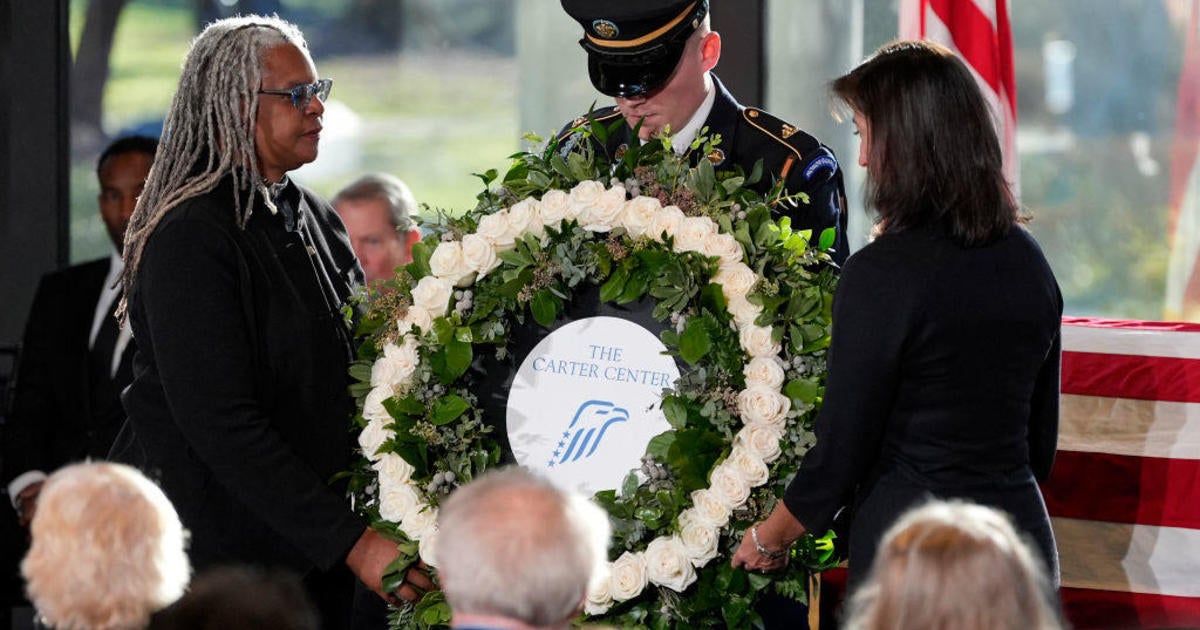Dr. Meredith Evans, the director of the Carter Presidential Library and Museum in Atlanta, Georgia, has a unique connection to former President Jimmy Carter that dates back to her childhood. At just 4 years old, Evans wrote a letter to President Carter, offering him a dollar and a penny to help him in his role as president. Little did she know at the time that this simple act of generosity would come full circle, leading her to her current position at the museum dedicated to preserving Carter’s legacy.
As Evans reflected on her childhood letter to President Carter, she shared a heartwarming moment she had with the late president when they first met. “When I met President Carter for the first time, I told him about the letter, we both laughed about it,” Evans told CBS News. This anecdote serves as a testament to the genuine and down-to-earth nature of President Carter, who was known for his humility and compassion.
The Carter Presidential Library and Museum in Atlanta serves as a tribute to President Carter’s life and legacy, showcasing his journey from a small-town peanut farmer to the highest office in the land. The museum highlights Carter’s roots in the rural farm communities of Plains and Archery, where he gained a deeper understanding of the challenges of segregation and racial inequality.
Evans emphasized the significance of Plains in shaping Carter’s perspective on race relations, stating, “It was an African American community. I don’t think it was until Plains that he realized how difficult segregation was for people of color.” This awareness of social injustices would later inform Carter’s policies and initiatives as president, including his efforts to promote civil rights and racial equality.
Despite facing challenges and controversies during his presidency, such as record inflation and the Iran hostage crisis, Carter’s commitment to peace and humanitarian work remained unwavering. Following his time in office, Carter went on to establish the Carter Center, focusing on global health, democracy, and human rights initiatives. His dedication to these causes earned him the Nobel Peace Prize in 2002, a recognition that Evans described as being received with “joy and humility” by Carter.
One of Carter’s most notable achievements as president was the Camp David Accords in 1978, where he brokered a historic peace agreement between Israel and Egypt. Evans hailed this accomplishment as one of Carter’s greatest achievements, noting, “He brought two arch enemies together and had a treaty signed. Not many presidents can say they did that.” This diplomatic triumph showcased Carter’s skill as a mediator and peacemaker on the world stage.
Despite his accomplishments and accolades, Carter remained humble and approachable, embodying the values of service and compassion throughout his life. Evans recalled Carter’s willingness to engage with people from all walks of life, emphasizing his authenticity and genuine concern for others. This personal touch is reflected in the museum’s exhibits and displays, which capture the essence of Carter’s character and leadership style.
As the nation mourned the loss of President Carter, the memorial service held at the Carter Presidential Library and Museum in Atlanta served as a poignant tribute to his enduring legacy. Evans, who now oversees the museum that bears his name, continues to preserve and honor Carter’s memory, ensuring that future generations will learn about his remarkable life and contributions to society.
In a world often marked by division and discord, President Jimmy Carter’s legacy serves as a beacon of hope and inspiration. His dedication to peace, justice, and humanitarian causes has left an indelible mark on the world, reminding us of the power of compassion and empathy in creating positive change. As Dr. Meredith Evans continues to carry forward Carter’s legacy at the museum, she honors his memory and his enduring impact on the world.









